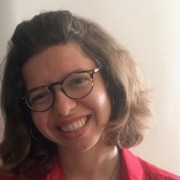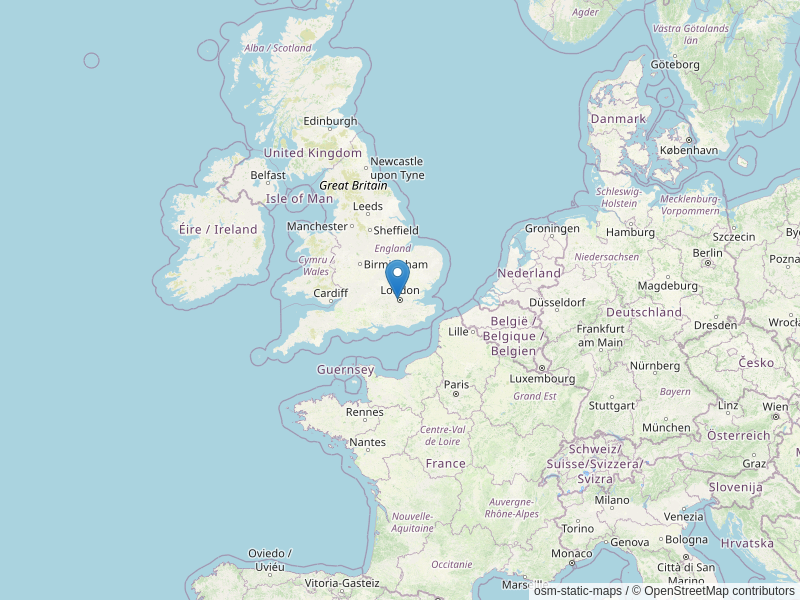In Profile - Alberta Tagliacozzo

© DAAD/Tagliacozzo
Hallo! I’m Alberta Tagliacozzo and I’m going to be German Language Assistant on behalf of DAAD at the University of Limerick for the A.Y. 2021/2022. I will be teaching as part of the German section and supporting the work of the Centre for Irish and German Studies in Limerick. I graduated in German and English Studies at the University of Naples and in 2020 I majored in comparative literature at Freie Universität Berlin with a DAAD scholarship. In my recent studies I concerned myself with female authors of contemporary German and Italian literature and never missed the chance to meet them in seminars. I’m currently focusing on German teaching and interested in the role of Literature in Language education. Besides teaching I’m an amateur translator from Italian to German and vice versa. In my free time I enjoy hiking, doing yoga and listening to irreverent German rap.
Which city in Germany have you been studying and what was/were the reason/s for choosing it?
I chose Berlin for my Major because of its literary past and present. I thought, it would have been a high stimulating environment to study and live literature in and I wasn´t disappointed. Berlin is a major centre for cultural life in all its aesthetic and scientific forms as well as a real hotspot for international literary life with literature festivals, public literature houses and public libraries at every corner. Just to name some of them: in September you shouldn’t miss the Internationales Literaturfestival Berlin with many readings also in English around the city, from April to November you should check Parataxe, a event serie with citywide multilingual readings and events from the Berlin international literary scenes. The rest of the year you can visit and attend events in the pretty garden of Literaturhaus Berlin, in the central and historical Literaturforum im Brecht Haus, or at the beautiful Literarisches Colloquium Berlin on the lake Wannsee. Sometimes it might be a bit dispersive studying in a metropolis with so many impulses, but it´s a great choice for students and researchers that can rely on many research and academic institutions as well as for artists that can train and educate in one of the most sparkling and stimulating environment Germany can offer.
Is there a (German) book or (German) author or maybe German film you always return to? If yes, why?
Would it be that obvious if I said Goethe? I’m not an expert of Weimarer Klassik but I constantly meet him on my path. “The Sorrows of Young Werther” was the first book of German literature I read in my youth – I was 12. I read it in German at University and after Werther came “Elective Affinities”, “Iphigenia in Tauris” and parts from the “Faust”. Some years after my Bachelor I found myself reading Faust at a seminar in Krakow for a summer school of the Studienstiftung des deutschen Volkes. With the other participants we also wrote a piece for a little theater performance, in which we played a session of a self-help group for Faust-obsessed. Since a couple of years I always travel with a yellow little Reclam book, “50 poems from Goethe” and I recently read the first five “Roman Elegies”. And last but not least I came across Goethe’s Translation of “the fifth of May” (a famous poem after Napoleon death, by Alessandro Manzoni, a well-known classical Italian writer), which sounds a bit too pompous, even more than Manzoni’s. So, why Goethe? I guess, it’s the appeal of the classics. Or he is the meanest persecutor of Germanists.
Can you cook a German dish without a recipe? If so, which one and where have you learned it?
I´m not that fond of the traditional German kitchen (my Italian side just rebels!) but I literally LOVE Kartoffelsalat (potato salad). Not in the berliner version but the way I learned it from a friend from South Tyrol. The difference? I guess, in northern Germany you let potatoes soak in a mayo based dressing, while in southern Germany, you would rather use white wine vinegar and a tablespoon of mustard. Sauerkraut (pickled cabbage) on the side cannot miss in the picture. I’m also quite good at Couscous-Salat, the most popular dish at berliner picknicks. Does it count as a German recipe?
What advice would you give to UK/Irish students who are thinking of pursuing research abroad in Germany?
English-speaking international students shouldn’t have huge troubles to find study courses or research/job opportunities in English. In the first place you can explore the study and research landscape and inform yourself about studying and living in Germany on the website Study in Germany and Research in Germany. You can look up for an English taught degree in the international programme database and eventually apply for a (DAAD) scholarship to finance your studies. After your arrival, you need to look into several administrative steps – registering your room/flat at Bürgeramt, the residents registration office, setting up a bank account for rent and insurance payments, getting a residence permit for UK citizens,… – for which it is useful to have some basic knowledge of German.
Find your contact persons and don’t be afraid to contact them and ask for help. At many Universities there are English-speaking services for academic advising and psychological counselling, international clubs and other facilities to help you by the orientation and planning of your study years (or just to make friends). And once you have successfully moved to Germany and set up your life there, don’t isolate yourself living the English-speaking life. This is your chance to take advantage of the Language Centre at your University or at your local Volkshochschule and learn German!






